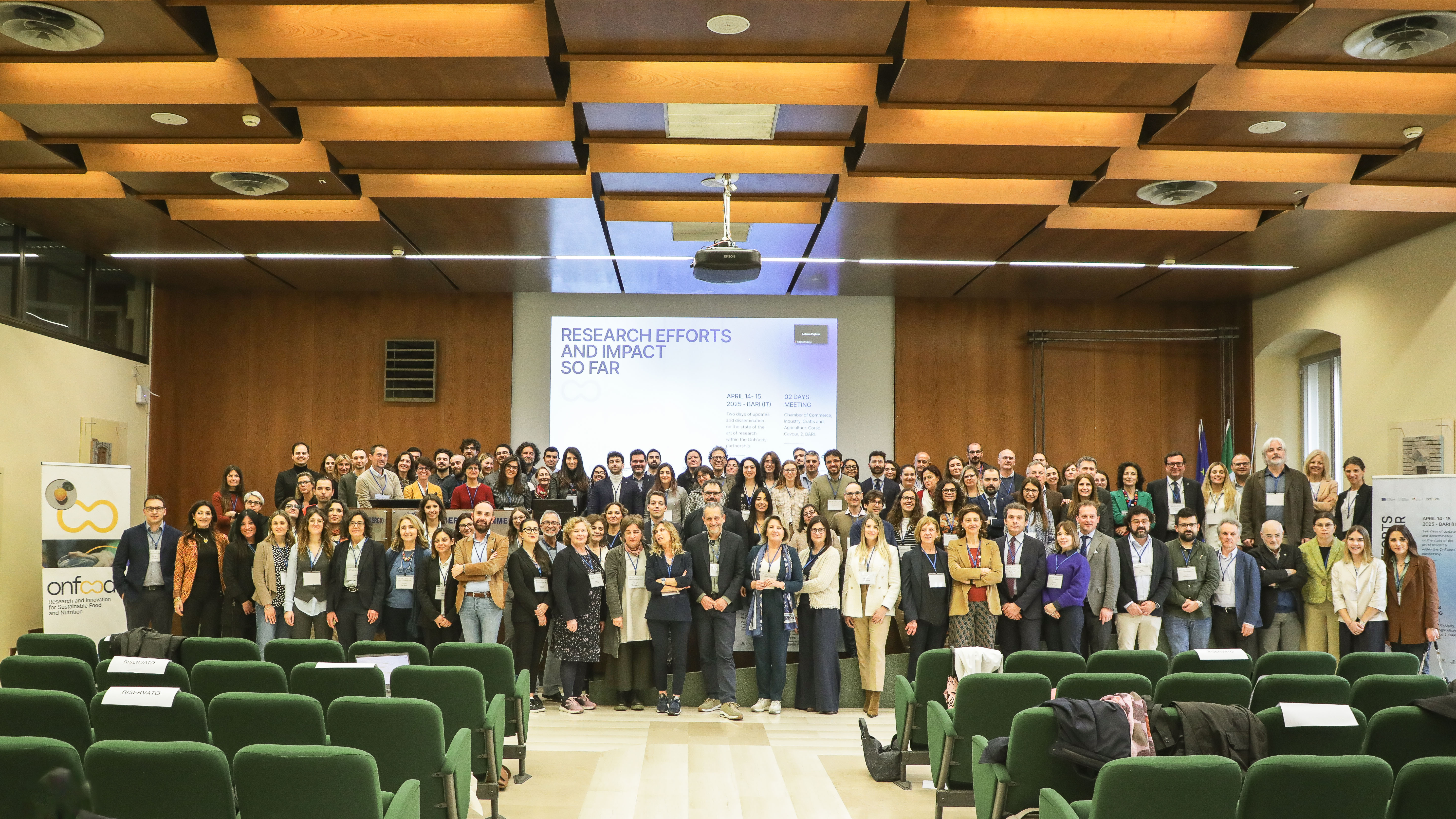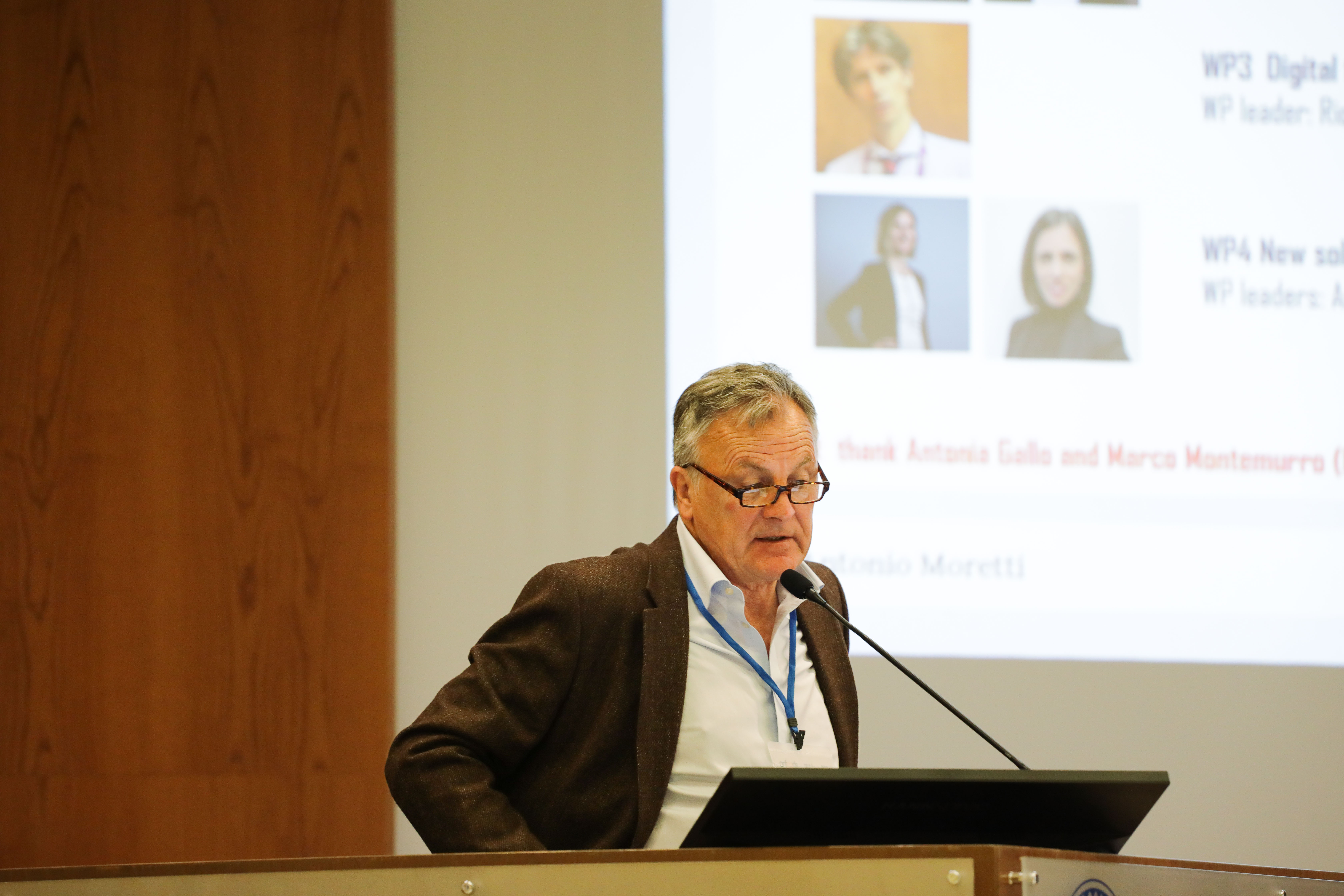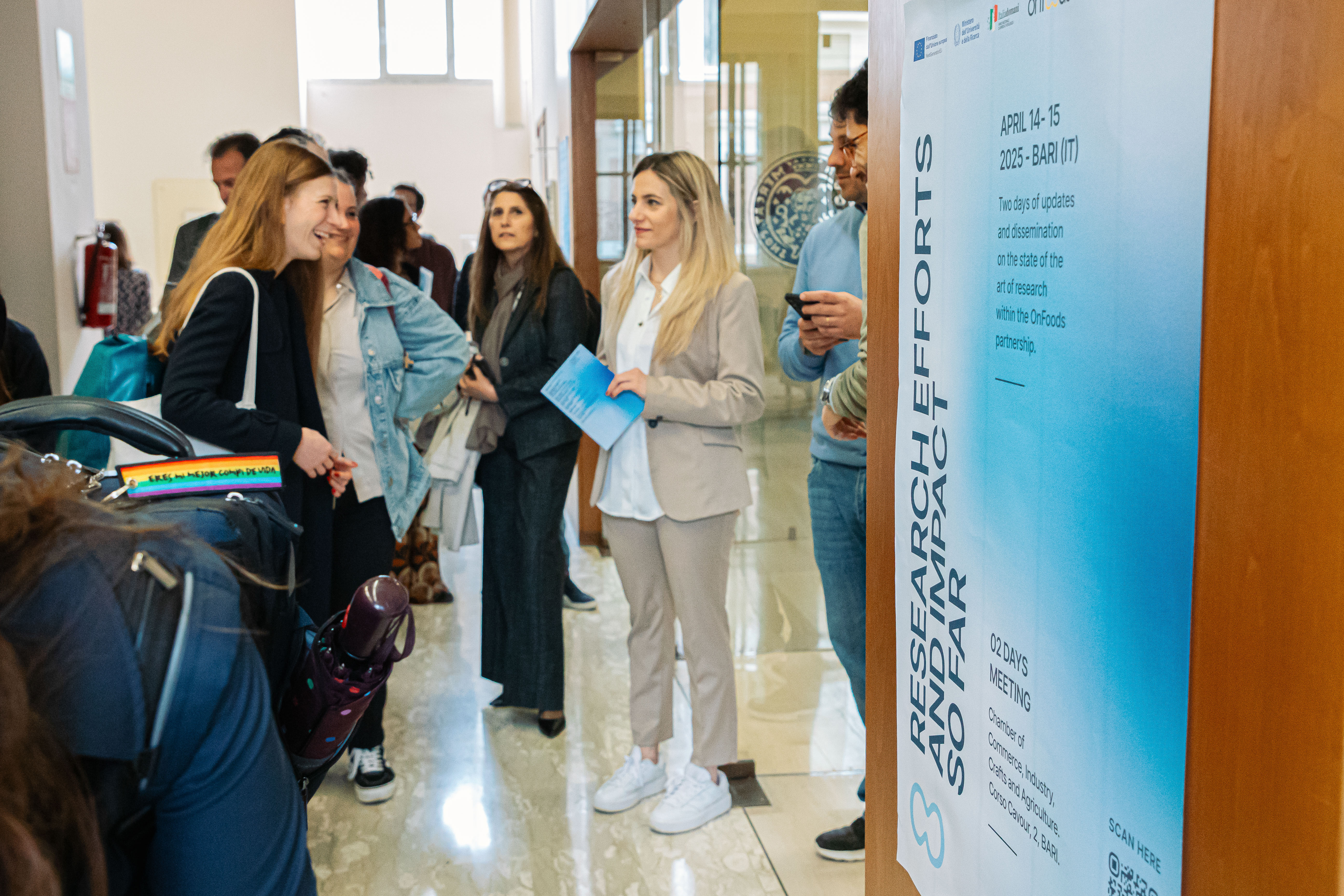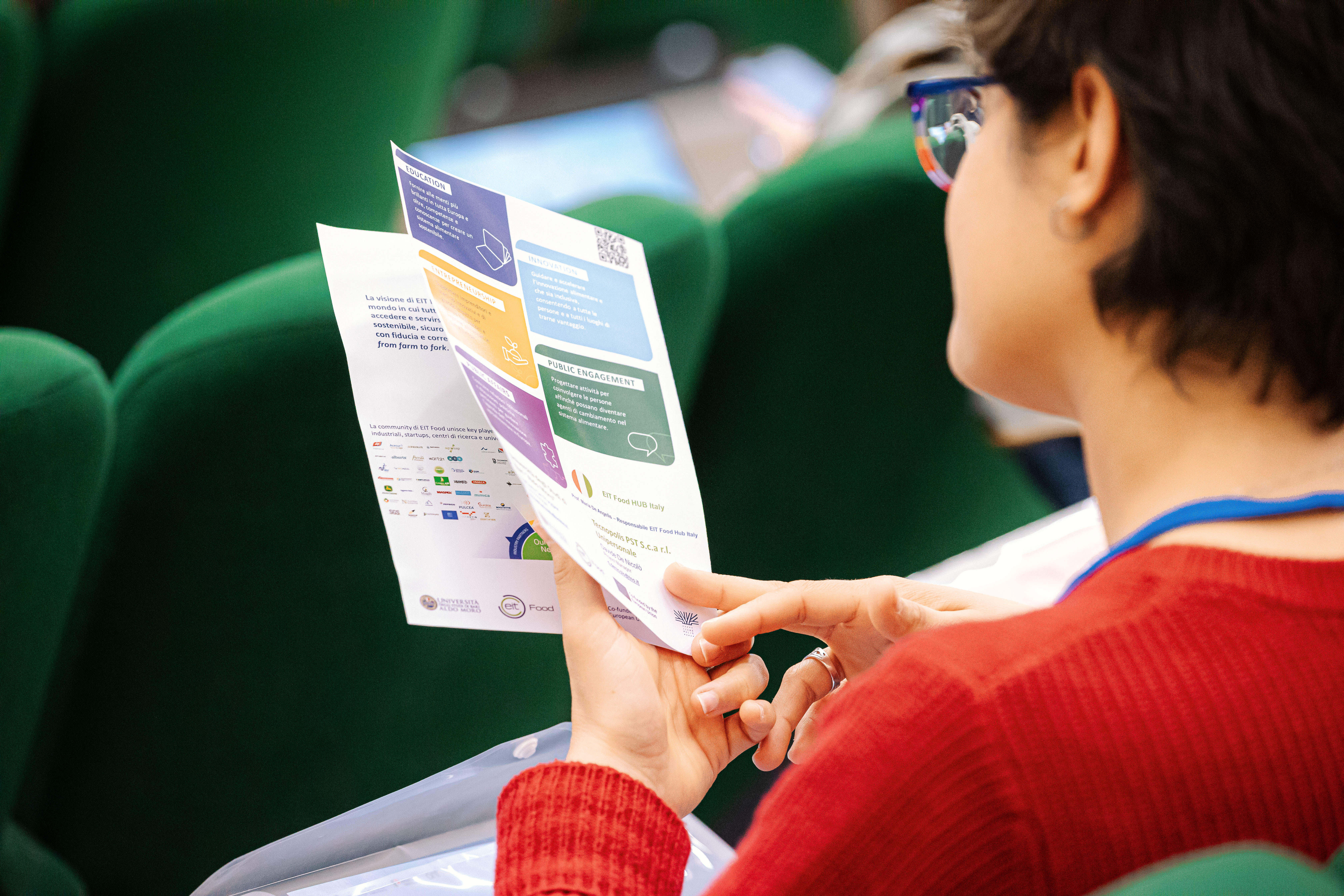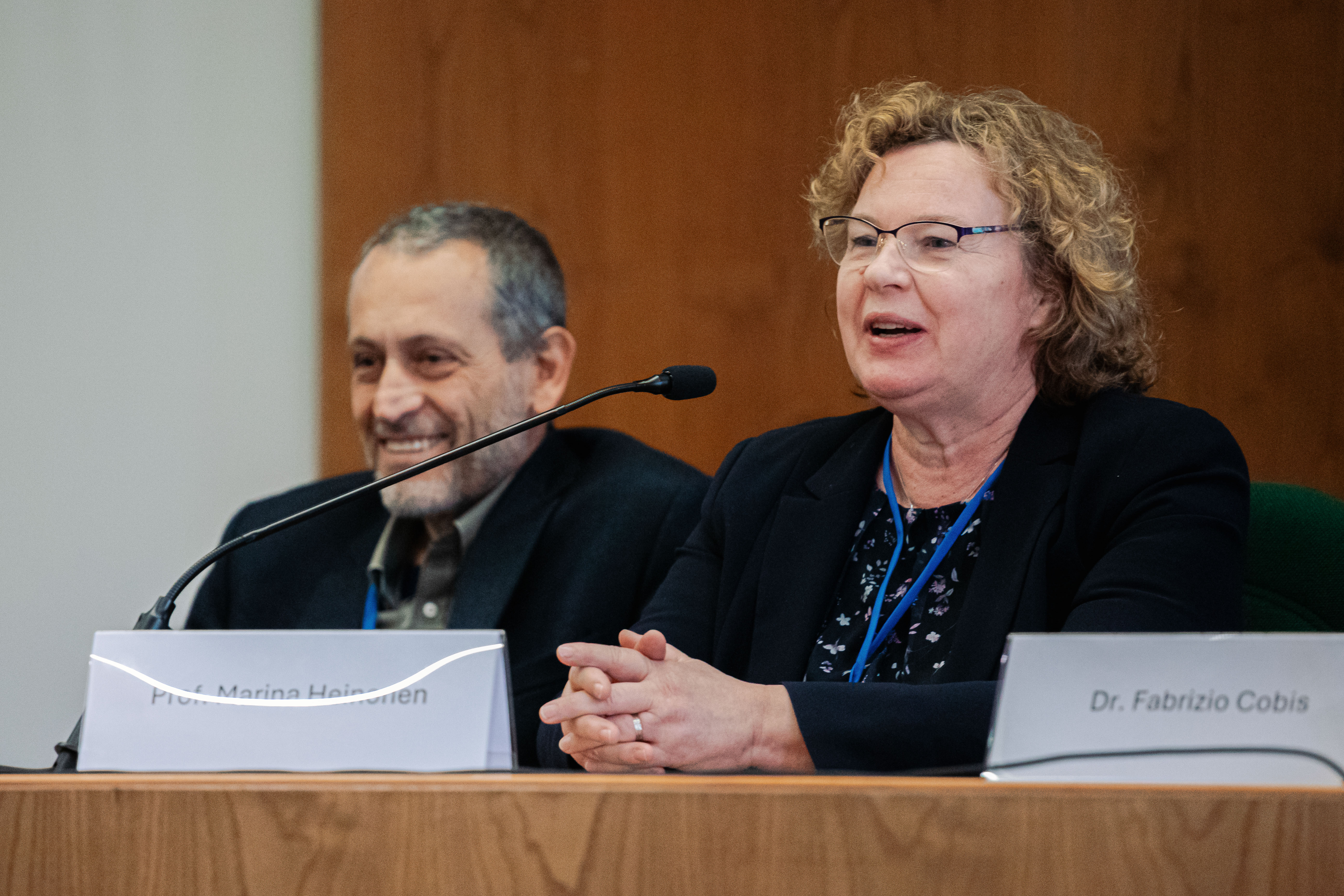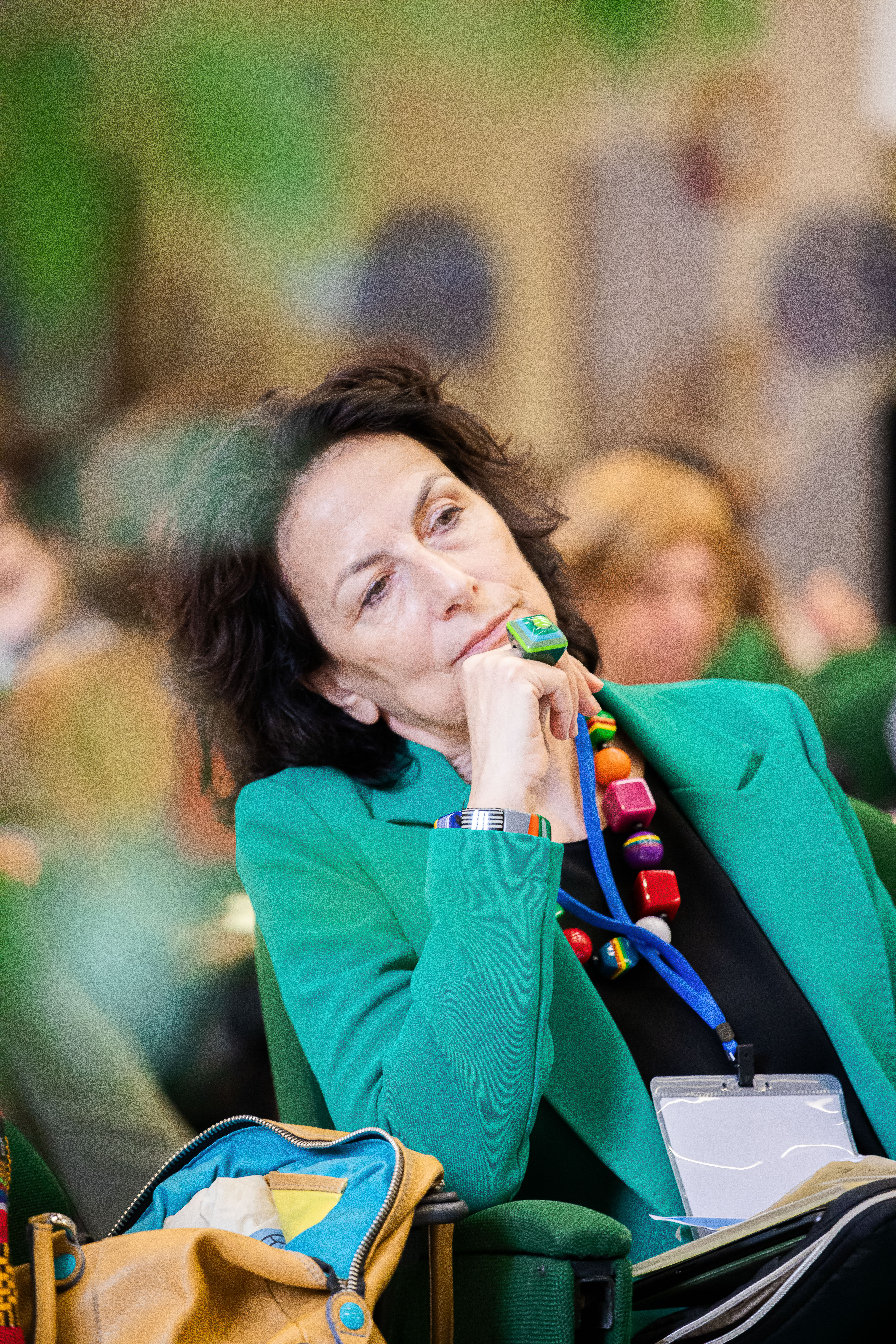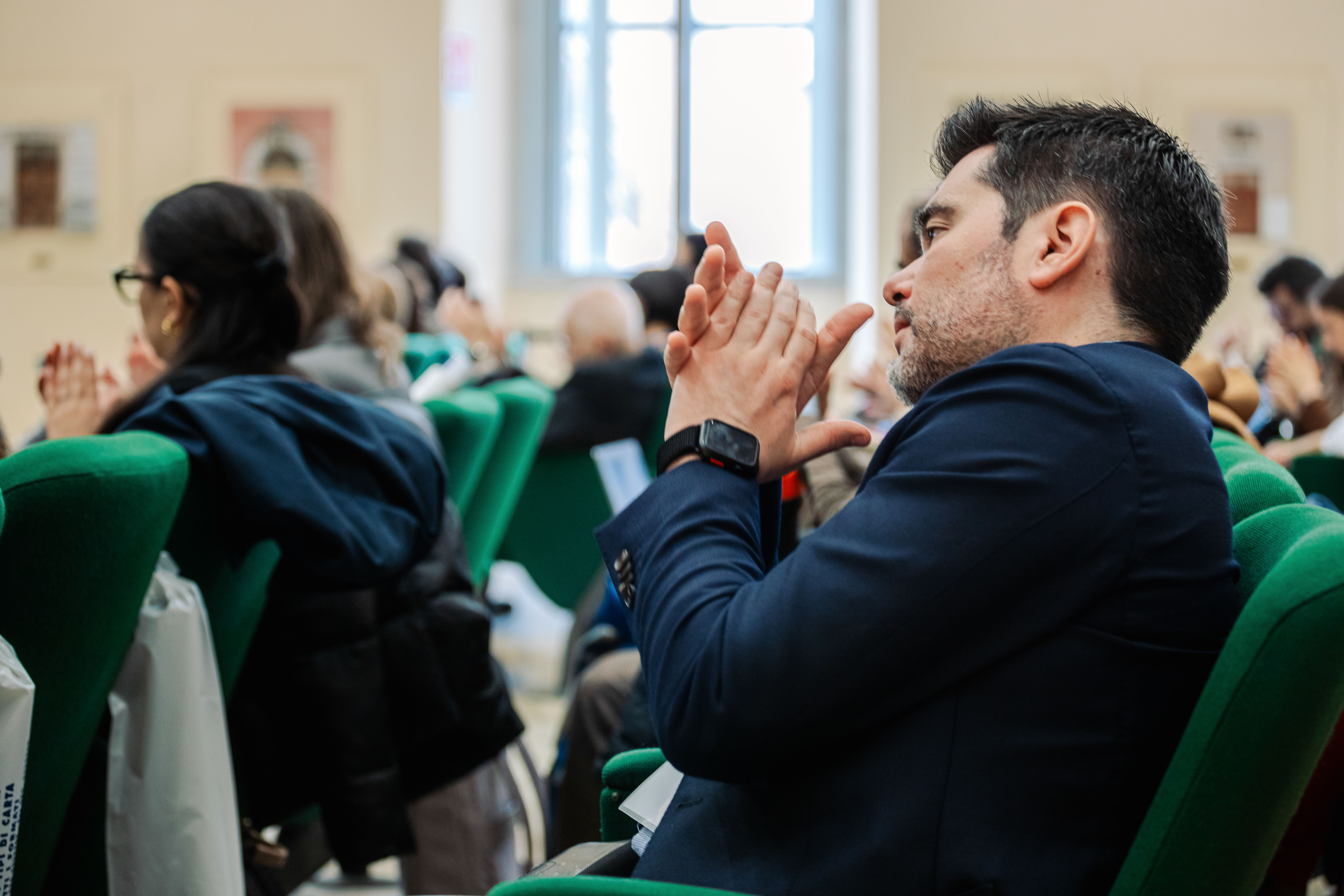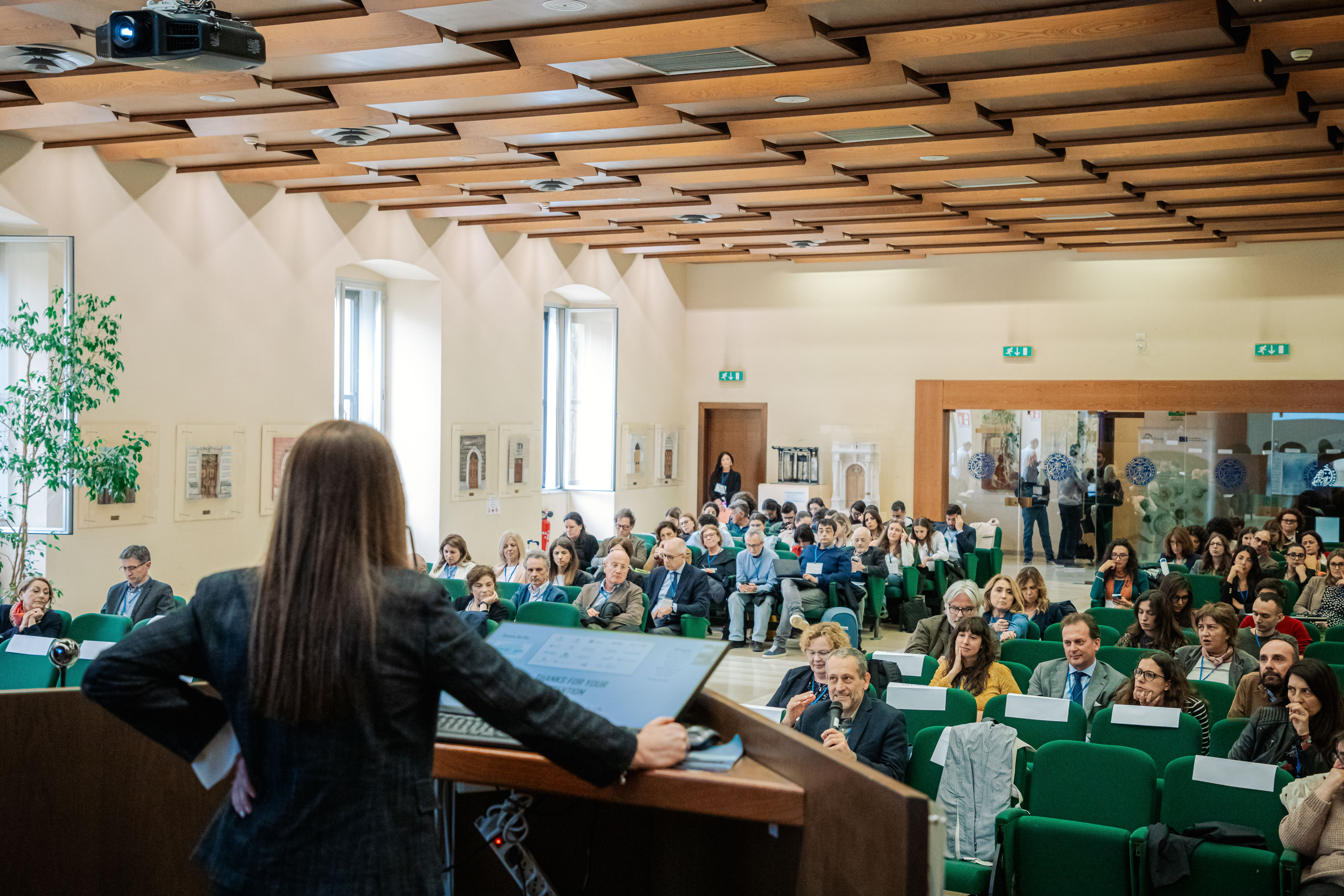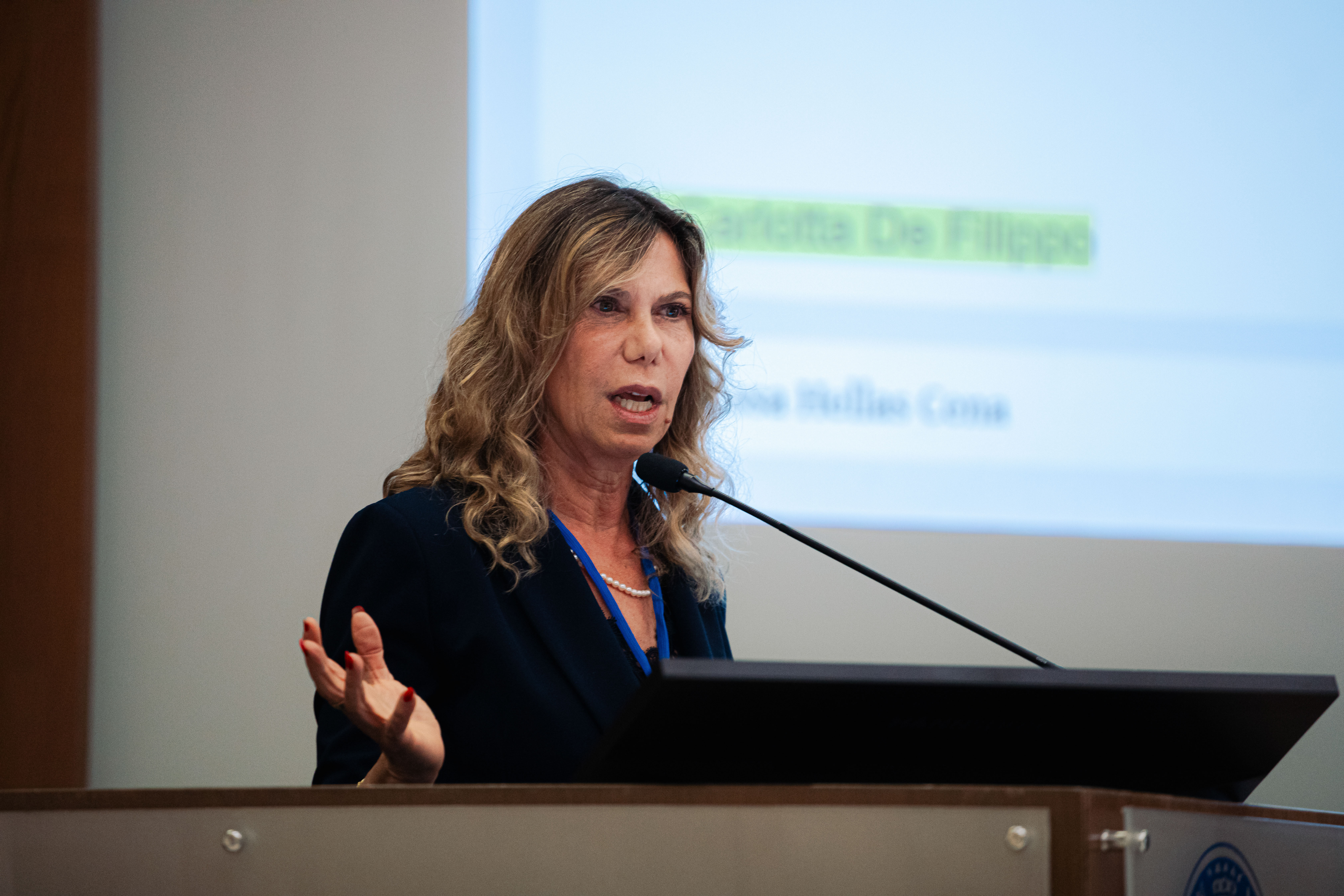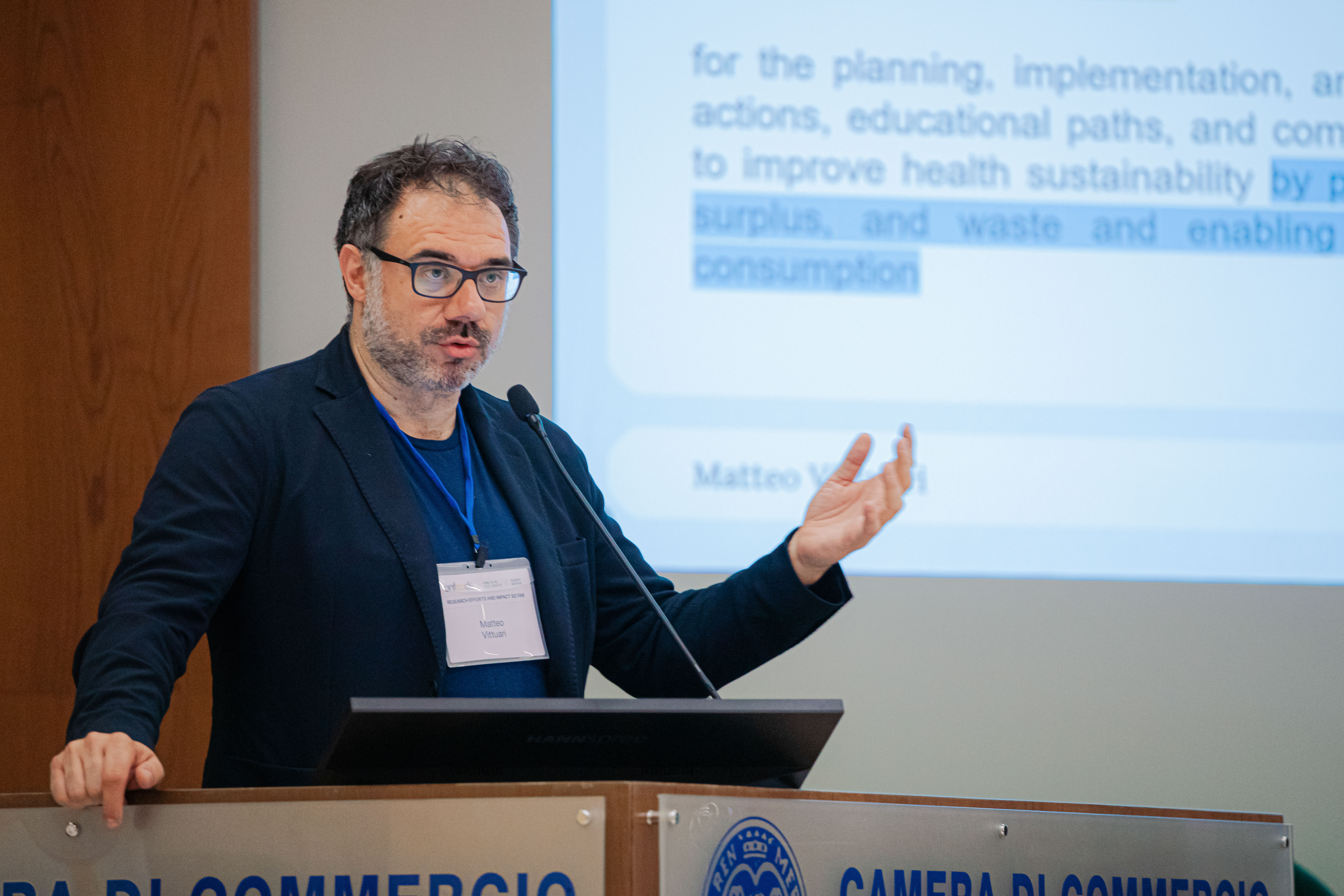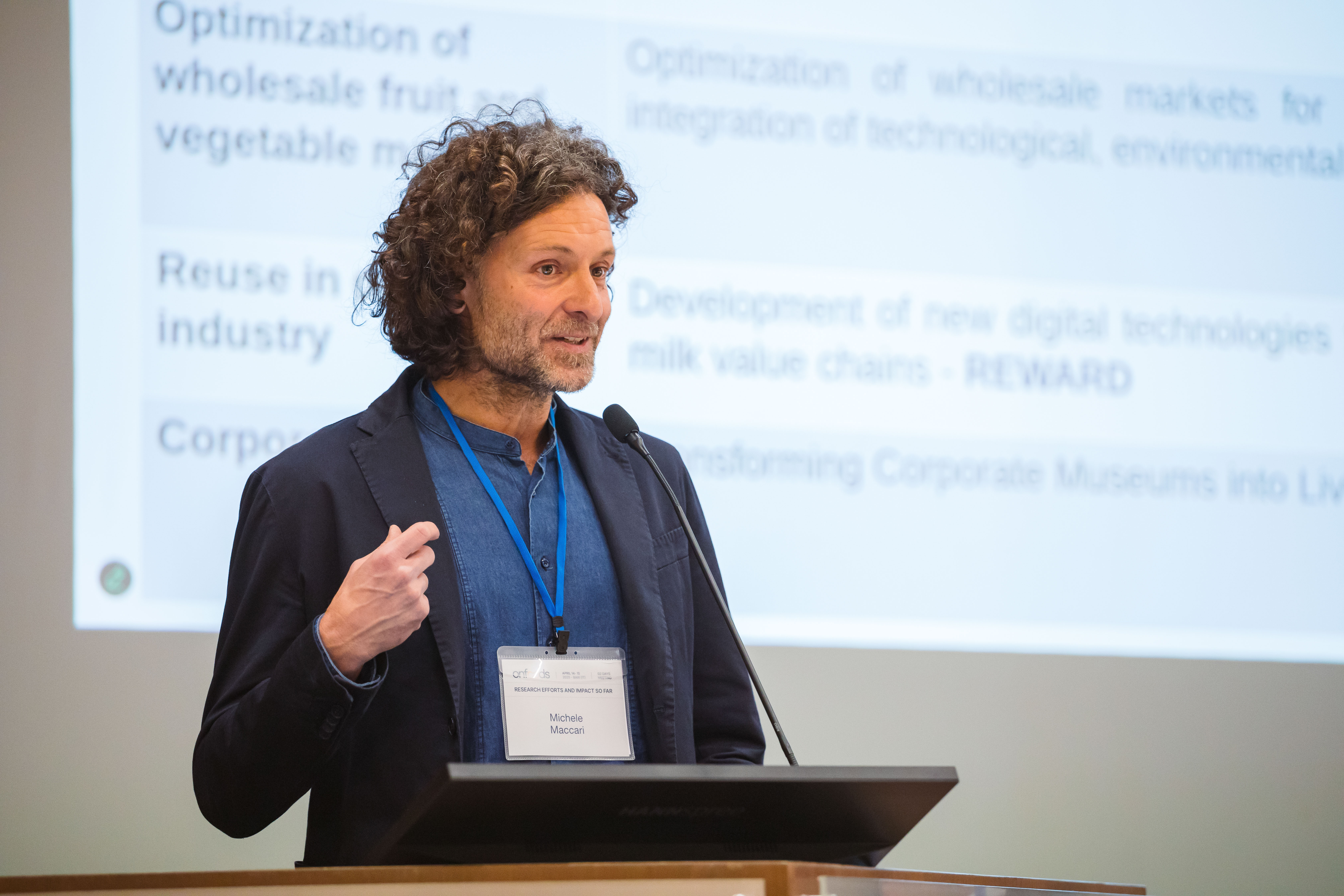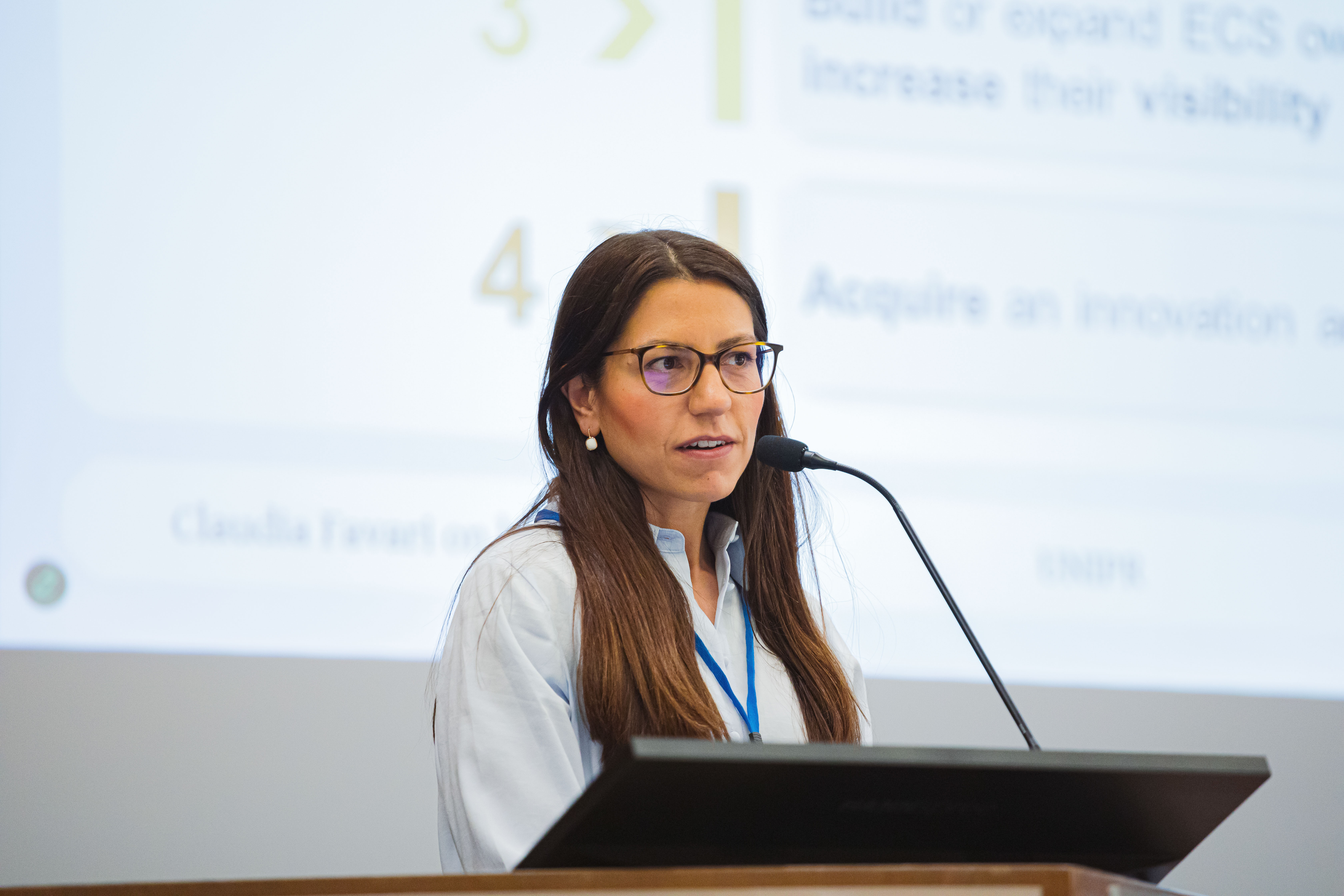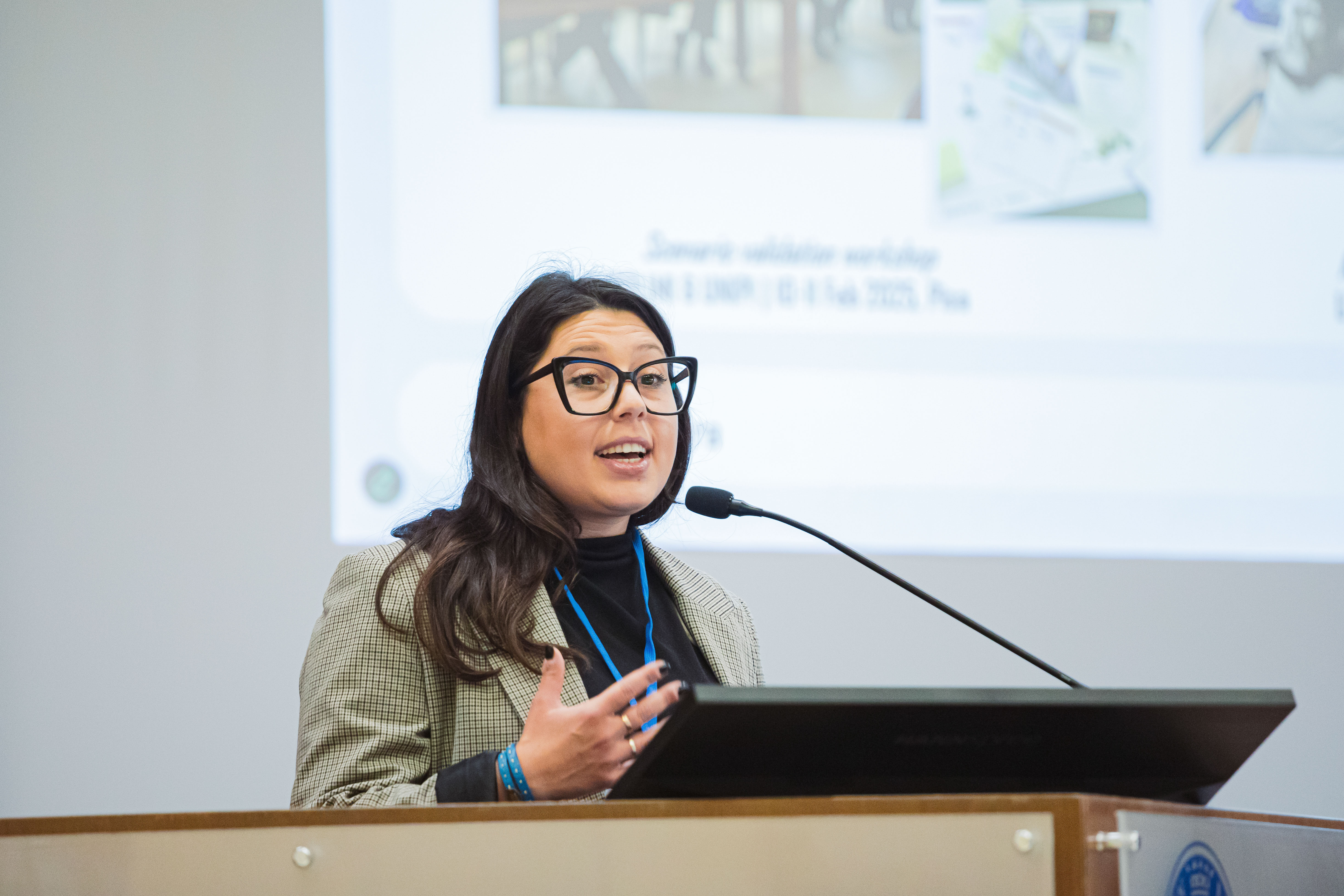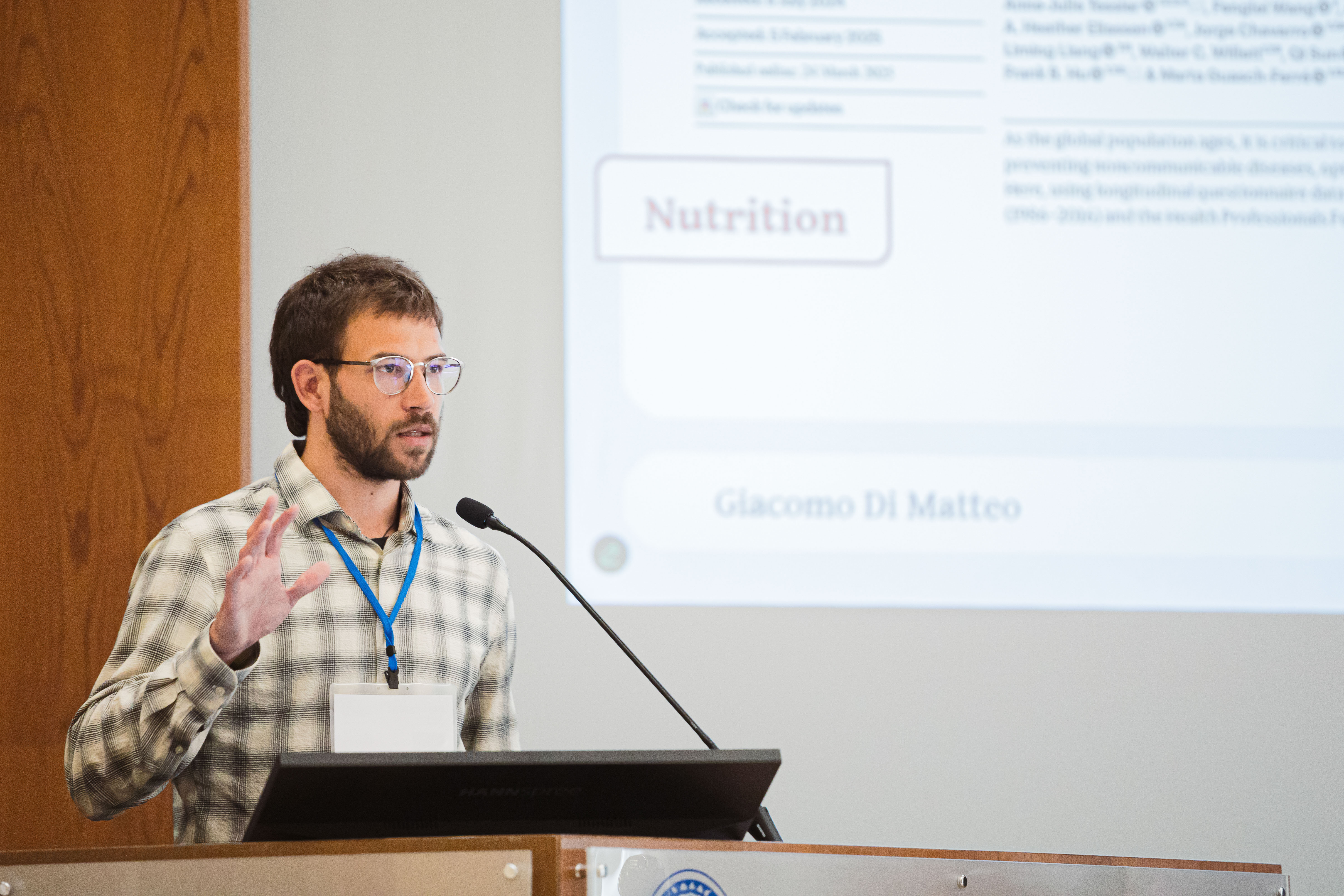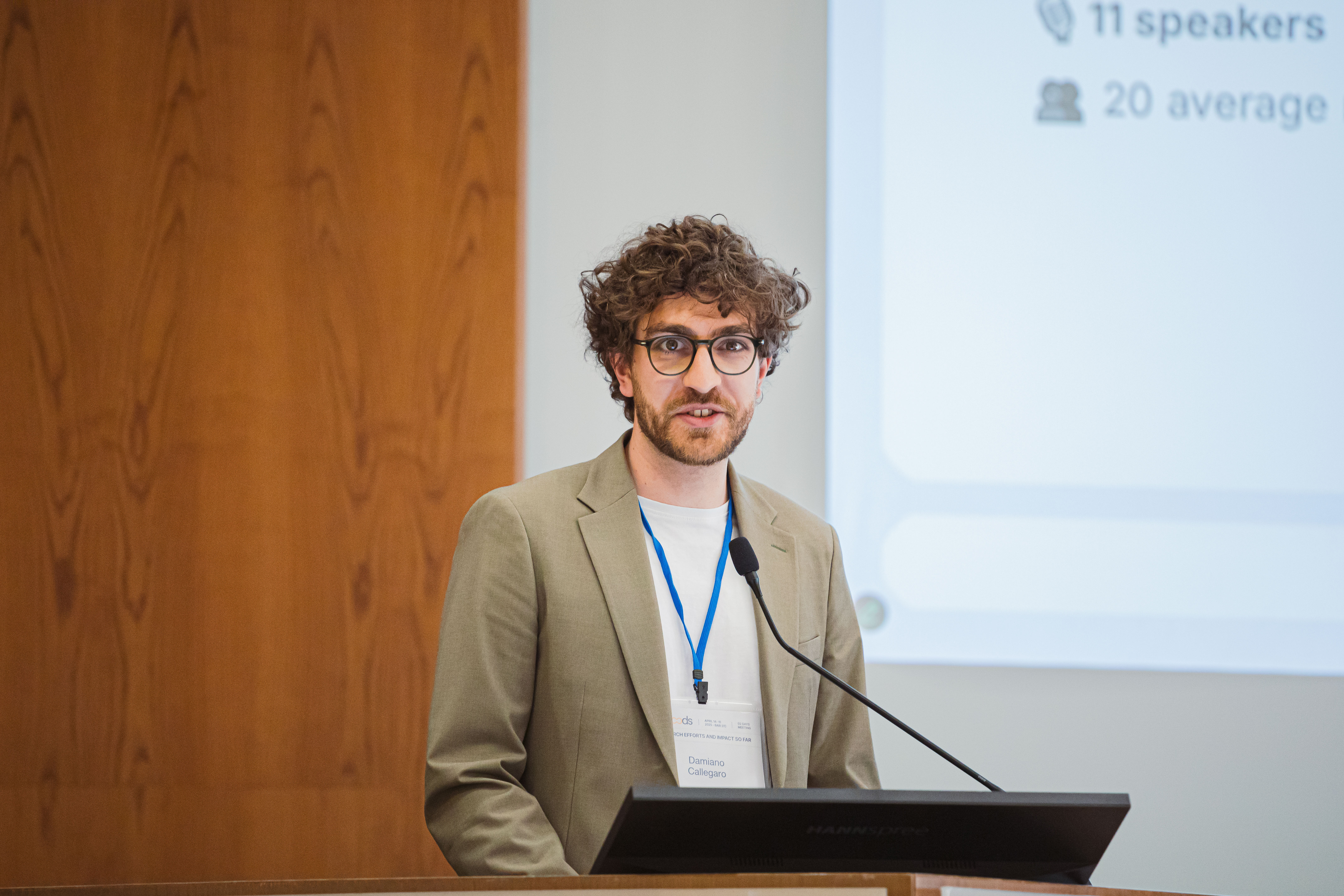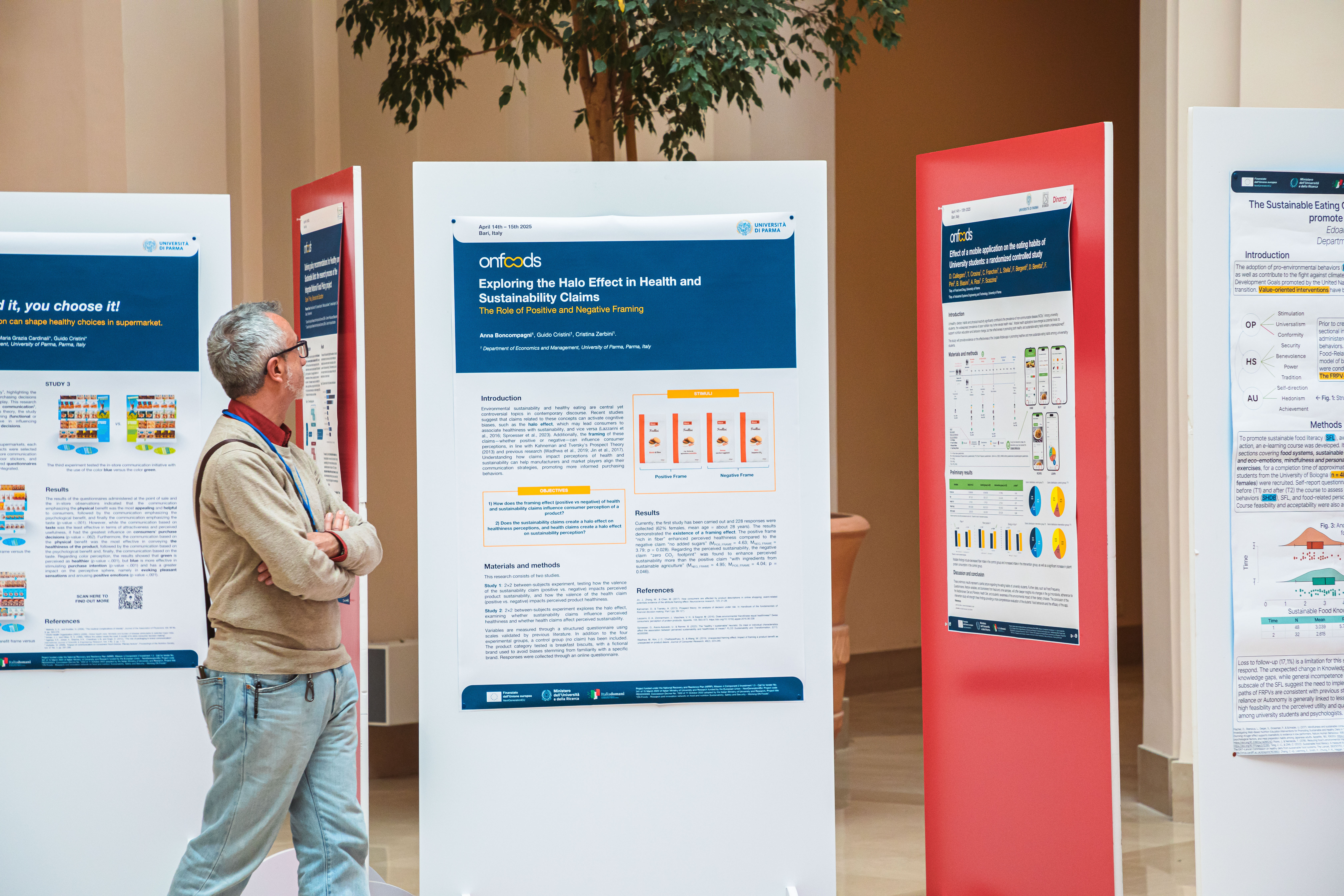Funded under the National Recovery and Resilience Plan (NRRP), Mission 4 Component 2 Investment 1.3, Theme 10.
From Labs to Policy: Italy’s Food Research Meets in Bari
Research results, young scientists, the companies' contribution. The OnFoods network met in Bari for two days of discussion and looking ahead, beyond the PNRR
The second Annual Research Meeting of OnFoods—the Extended Partnership funded by Italy’s National Recovery and Resilience Plan (PNRR) and dedicated to food and nutrition sustainability, safety, and quality—was held on April 14–15, 2025, at the Chamber of Commerce of Bari. The event brought together research institutes, universities, companies, and young researchers, less than a year before the conclusion of the three-year project.
OnFoods currently involves over 600 people, including researchers, PhD students, and post-docs, working on more than 300 scientific projects developed collaboratively by 26 public and private organisations. The goal is to transform the Italian agri-food system through an integrated approach based on co-creation, innovation, and impact.
During the meeting, participants shared scientific results already achieved, discussed ongoing challenges, and explored the project's future outlook. The seven thematic research areas presented their work in discussions with international reviewers, providing a concrete overview of the breadth and depth of the ongoing activities.
Many focused discussions took place on key themes of the contemporary food agenda, including sustainable packaging, the creation of shared databases, the prevention of malnutrition, and the promotion of the Mediterranean diet. Additionally, personalised nutrition was emphasized, which increasingly aims for tailored solutions for specific population groups. A pivotal aspect was the use of technology to better understand the mechanics behind food safety and the environmental impact of the supply chain, such as food spoilage, temperature, and transport conditions, thanks to sensors, digital, and physical twins.
Food safety was another main focus, with research ranging from identifying new microbiological and chemical risks to evaluating emerging contaminants such as PFAS, biogenic amines in cheese, and glyphosate and antibiotic residues in animal-derived products. Various advanced technologies, including multi-omics analysis, active coatings, and targeted fermentation, were applied to develop innovative, safer ingredients such as legume and insect flours.
Nutrition throughout the life cycle was central to many projects. Data and interventions were presented for pregnancy and the first 1000 days, children and adolescents, adults, and the elderly, with nutrition strategies built on scientific evidence and adapted to specific clinical or social conditions. The focus on diet quality also manifested in studies on metabolism, mitochondrial function, gut microbiota, and the use of natural bioactive compounds such as polyphenols.
The project proposed integrated solutions to combat malnutrition, including undernutrition, overnutrition, and deficiencies, with new functional foods, plant-based antimicrobial extracts, novel foods, and educational strategies in schools and healthcare settings. Special attention was given to preventing frailty in older adults, with nutritional pathways developed in collaboration with regional institutions and healthcare facilities.
The event also emphasized the educational, social, and behavioral dimensions of food sustainability. Digital tools such as apps and software for menu planning in public canteens were presented, along with nudging interventions to promote healthy choices in universities and schools, underpinned by studies on the effectiveness of in-store communication in shaping consumer behavior. Another line of work focused on mapping and analysing food policies in Europe, supported by the updated F-POD portal, to strengthen the coherence and impact of public actions.
The meeting featured the participation of Stefano Bronzini, Rector of the University of Bari; Daniele Del Rio, President of the OnFoods Foundation; Maria De Angelis, Scientific Coordinator (University of Bari); Patrizia Riso, Antonio Moretti (CNR), Marina Heinonen (University of Helsinki), and Vincenzo Fogliano (Wageningen University).
“This project is an extraordinary training opportunity for young researchers and the entire Italian food research ecosystem,” said Daniele Del Rio. “But it’s also a test of maturity: we must show that we can work together, share data, and build policy. We are only at the beginning of a journey that will make sense only if we can go beyond the three-year timeframe and establish a stable, open network focused on social impact.”
“OnFoods has succeeded in bringing together scientific expertise, practical skills, and diverse visions and strategies,” added Antonio Moretti. “The variety of projects presented over these two days shows how central food research has become—not only for human health but also for the sustainability of local areas and social cohesion.”
There were also moments dedicated to dialogue with partner companies, and the young researchers' experiences involved in projects and initiatives funded through Cascading Calls. Also, Mentorship programs were launched, fundamental in helping train a new generation of agri-food experts.
“Multidisciplinarity and multi-specialization are both strengths and challenges in OnFoods’ work,” concluded Maria De Angelis, the project’s scientific lead. “For us in the South, collaboration with companies is extremely important, and I hope these connections will continue beyond the end of the project.”
